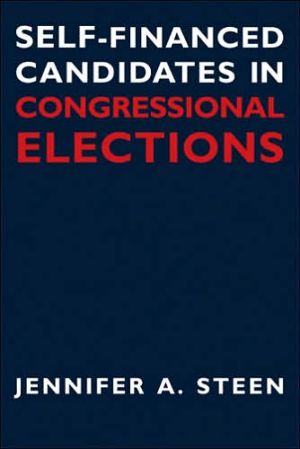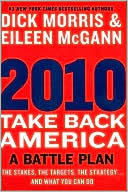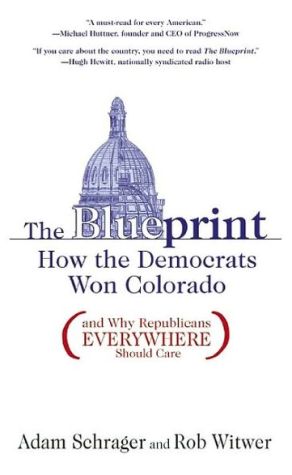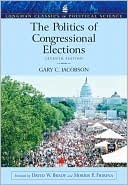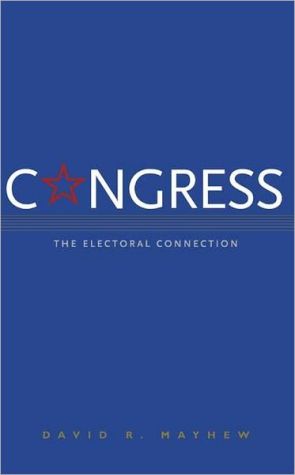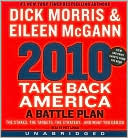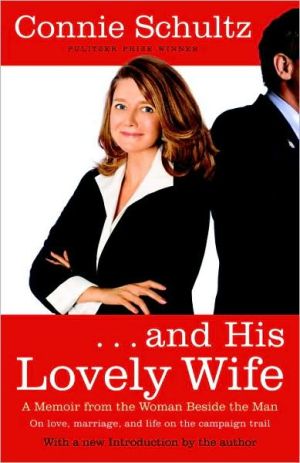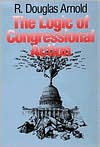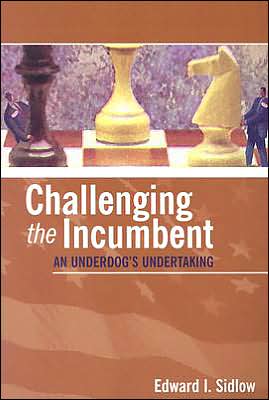Self-Financed Candidates in Congressional Elections
Search in google:
Self-Financed Candidates in Congressional Elections\ \ \ By JENNIFER A. STEEN \ THE UNIVERSITY OF MICHIGAN PRESS \ Copyright © 2006 \ University of Michigan\ All right reserved.\ \ ISBN: 978-0-472-09903-0 \ \ \ \ \ Chapter One Introduction \ Mention the 2000 election cycle and most people think of butterflies and chads. But before the photo finish in Bush versus Gore (and Bush v. Gore), a different election held political junkies across the nation transfixed. In an open-seat election for the U.S. Senate in New Jersey, former Goldman Sachs chairman Jon S. Corzine shattered the previous record for personal spending in a statewide election, self-financing more than $60 million en route to defeating first Jim Florio, the former New Jersey governor, then Bob Franks, a moderate Republican congressman.\ Corzine's victory inflamed a public debate on the impact of self-financers on American politics that simmered throughout the 1990s, coming at times to a full boil in response to the visibility of candidates like Michael Huffington, Steve Forbes, and Al Checchi. (The new mayor of New York, Michael Bloomberg, self-financed more than these three gentlemen combined, but he was crowded out of the editorial pages by September 11 and its aftermath.) Editorial writers urged "[reclamation of] the political system from the clutches of wealthy candidates" (New York Times 1996, A20). Reform advocates heralded the advent of "plutocracy" (Buckley 2000). And candidates who had to fend off rich challengers warned of "a government of millionaires who in effect will buy seats" (Sher, LaPolt, and Woods 1996).\ The critical tone of commentators has been mirrored in congressional debate over campaign finance reform. During hearings on the Federal Election Campaign Act of 1971 (FECA),Senator John Pastore (D-Rhode Island) warned that without limits on personal spending "only the wealthy or those who are able to obtain large contributions from limited sources will be able to seek elective office. Neither situation is desirable and both are inimicable [sic] to the American system" (U.S. Senate 1971, 152). His colleague, Senator Frank Ross (D-Utah), agreed. "I think nothing is more important than to make running for political office available to any citizen of this country and to do away with the advantage given those who have great wealth" (U.S. Senate 1971, 159). Sixteen years later, Senator Pete Domenici (R-New Mexico) introduced a measure to help self-financers' opponents stay competitive. "Unless we are careful, Mr. President," Domenici cautioned from the Senate floor, "the congressional marketplace will become a Gucci boutique.... in a democracy we must not allow individuals who control vast wealth to enter the election booth with a big, sometimes unassailable, advantage" (U.S. Senate 1987b, S2685). Senator Dennis DeConcini spoke in support of Domenici's proposal.\ We are making elective office only available to a certain class of citizen. If this standard were always the way our leaders were selected this country would have missed out on having the leaders like-Abraham Lincoln and Harry Truman-leaders of modest beginnings and no wealth. If we continue on this path and do not reform the system we are indeed in danger of having Mark Twain's remark "the best Congress money can buy" become the truth. (U.S. Senate 1987a, S7651)\ Members of Congress spoke out against self-financers during consideration of the Bipartisan Campaign Reform Act of 2002 (BCRA),which included a variant of Domenici's fourteen-year-old proposal, now dubbed the Millionaires' Amendment. The amendment raised limits on individual contributions and party expenditures for candidates who face off against the deep-pocketed. Although some observers believed the Millionaires' Amendment was a self-serving ploy by congressional incumbents to maintain their traditional advantages (e.g., Harshbarger 2001; U.S. Senate 2001d), Senator Mike DeWine (R-Ohio) articulated his concerns in terms of political principles: "In essence, this struggle between rich and not so rich candidates really is a struggle for the soul of democracy" (U.S. Senate 2001c, S2539). On the House side of the Capitol, Representative Shelley Moore Capito (R-West Virginia) called the Millionaires' Amendment "a way to correct what I believe is one of the most glaring inequities in the current system" (U.S. House 2002a, H430). (Capito's view may have been influenced by experience-in 2000 her Democratic opponent self-financed $5.6 million in his primary and general election campaigns; in the 2002 rematch she was anticipating when she uttered these words he ended up self-financing nearly $8 million.)\ The plethora of public commentary on candidate self-financing stands in stark contrast to a dearth of theoretical and empirical inquiry. To date, political scientists have not provided a basic description of this controversial and increasingly prominent strategy in American electoral politics. Most scholarly references have been brief, with little or no interpretation. This book therefore fills a gaping hole in the political science literature, presenting the results of the first comprehensive investigation of self-financing in American congressional elections. It points not to a democratic system under attack from indiscriminate personal spending, but to a set of effects that require more subtle analysis and interpretation. Indeed, self-financed candidates have a spectacularly unimpressive batting average: the vast majority of candidates who rely on personal funds to pay for congressional campaigns strike out at the polls. Nonetheless, their participation in the electoral process has important consequences for democracy and representation. Focusing on self-financers also throws the political context into sharp relief, allowing refinement of existing notions of strategic decision making, the nature of political fund-raising, and the effect of campaign spending on election outcomes.\ SELF-FINANCING AND DEMOCRATIC PRINCIPLES\ In a game of Monopoly, each player starts with fifteen hundred dollars and the end result depends only on luck and skill. In an election campaign luck and skill are also important, as is the congruence between a candidate's political portfolio and the electorate's preferences. But money matters, too, and in the game of politics-unlike in Monopoly-players do not start off on equal footing. A candidate who is personally wealthy and willing to self-finance his political efforts seemingly enjoys a head start in campaign funding that gives him an automatic advantage over competitors with comparable political credentials. This advantage violates the principles of equal opportunity and fair play, deeply ingrained American political values.\ The "loophole" in campaign finance law allowing candidates at any level of American public office to self-finance campaigns is a consequence of the Supreme Court's decision in Buckley v. Valeo, which overturned sections of the Federal Election Campaign Act of 1971. One FECA provision capped self-contributions at $25,000 for House candidates, $35,000 for Senate candidates, and $50,000 for presidential candidates, and FECA's defenders argued that these limits would reduce inequality among candidates. However, the Court found that "the ceiling on personal expenditures by candidates on their own behalf ... imposes a substantial restraint on the ability of persons to engage in protected First Amendment expression" (424 U.S. 1, 12-59 (1976)).\ Buckley may have settled the matter constitutionally, but in leaving personal spending unregulated it did nothing to assuage the concerns behind FECA's self-financing cap. Central to the legislative debate on FECA was the presumption that allowing unlimited self-financing in election campaigns undermines political equality. If personal wealth confers a political advantage, which is (and was) usually assumed, citizens who cannot bankroll their campaigns do not have an equal opportunity to promote their views or serve in representative government, regardless of their qualifications or political ideas. Of course, personal wealth is not the only potential source of political advantage. At any level of political office, candidates who already hold that office (i.e., incumbents seeking reelection) hold a significant edge over candidates who do not. It has also been established that candidates who have previously held any office, not just the one being sought, win much more often than candidates seeking their first elective position ( Jacobson 1989; Jacobson and Kernell 1983). But the advantage of political experience does not offend our sense of fairness as much as the advantage of personal wealth does because it is earned in the political arena, not attained in the market sector or inherited, and is more relevant to a candidate's qualifications. Citizens do not have strictly equal opportunities to accrue political experience, either, since experience depends on past success, which in turn can depend on nonpolitical advantages. But past success also requires some political skill and hard work, and these are legitimate sources of political advantage.\ Political equality is important not only because it maintains fairness but also because it gives meaning to the electoral decision. As Stone et al. note, "The representative nature of the [American] system works best when two or more strong candidates compete for the support of their fellow citizens.... If citizens are to exercise the franchise in a meaningful way, the electorate must be offered a choice between or among candidates, and the flow of information to the electorate from the candidates or parties competing for the office must be roughly balanced" (1998, 1). Senator\ Dick Durbin explicitly relates this problem to self-financing. People will show up with a lot of money in the bank, spend it on the campaign, and literally blow away any type of political opponent. Who loses in that process? The voters lose. If the system works as it is supposed to, you have a choice on election day. In order to have a choice, you have information about all candidates. That means you have an information source not only from a wealthy candidate but from someone who is not so wealthy. (U.S. Senate 2001e, S2540)\ When one candidate enjoys a large advantage over the other(s),the absence of competition strips the vote choice of its meaning. In other words, a tremendous financial advantage can make an election so uncompetitive that it does not truly conduct citizens' preferences. Nor is it an exercise in accountability. This notion underlies complaints, frequently voiced by reform advocates, editorial writers, and self-financers' opponents, about self-financers "buying elections." The problem is compounded if wealthy candidates scare away potentially strong competitors, that is to say, if self-financing has a chilling effect on candidate emergence. Stone et al. argue, "Those concerned with the functioning of our democracy must be concerned if the strongest potential candidates do not put themselves forward for public office"(1998,1),both because the electorate may have a shorter menu of choices and because campaigns may be less competitive.\ The claims of reform advocates and editorial writers notwithstanding, self-financing does not universally undermine electoral competition. Indeed, it may actually enhance competition when self-financers challenge incumbents who might otherwise run without serious opposition. One political consultant has commented, "A challenger who cannot jump-start his own campaign might as well forget it" (Van Biema 1994, 35). Given a choice between weak opposition and solid, even if self-financed, opposition to an incumbent, surely small-d democrats should prefer the challenger who has enough funds to communicate with the voters and offer them a viable alternative.\ Candidate self-financing has implications beyond electoral contests. One oft-repeated criticism of self-financing is that it undermines the representativeness of elected bodies by increasing the number of wealthy citizens serving in public office. After his 1994 battle against a candidate who self-financed $6.5 million, Tennessee's then governor Don Sundquist lamented, "People who founded this country intended for people to serve in public office from all walks of life, and ... we're heading toward a government of millionaires who in effect will buy seats" (Sher, LaPolt, and Woods 1996, B1). Anticipating Jon Corzine's $35 million victory in New Jersey's 1998 Democratic primary for U.S. Senate, Sheila Krumholz of the Center for Public Integrity declared, "It's no longer a democracy but a plutocracy" (Buckley 2000). These comments imply that a government of millionaires is a bad thing, regardless of what the millionaires in government do, because it does not accurately reflect the distribution of millionaires in the population at large. As Norman Ornstein has argued, "Ideally, you want Congress to be a variegated group, people with diverse life experiences. You lose something if personal wealth becomes a criterion" (Van Biema 1994, 35).\ Some self-financed candidates counter that financial independence allows them to pursue their constituents' interests without having to consider the wishes of campaign contributors. For example, U.S. Senate candidate Tom Bruggere (D-Oregon), who contributed nearly $1.5 million to his 1994 campaign, boasted, "No one owns me. I don't have special interests controlling me, and a $5,000 contribution won't buy me" (Walsh 1996, 26). This claim has also surfaced in campaign slogans: Herb Kohl, the Democratic senator from Wisconsin who owns a chain of grocery stores and the Milwaukee Bucks basketball team, campaigns as "Nobody's Senator but Yours," and the tagline of Jon Corzine's (D-New Jersey) television commercials during his 2000 campaign for U.S. Senate was "Unbought and Unbossed."\ WHAT DO WE KNOW ABOUT SELF-FINANCING?\ The amount of energy, resources, and even hand-wringing devoted to the "rich candidate problem," as one editorial deemed it, should depend on the magnitude of the rich candidate's advantage. If self-financing has no impact on competition or election outcomes, then the normative concerns become moot. The New York Times has editorialized, "Congress has no more urgent task than to clean up a campaign financing system that gives undue advantage to rich candidates"(1996,A20). But if the "undue advantage" is small, Congress may in fact have many tasks more urgent than the rich-candidate problem.\ There has been surprisingly little empirical work in this area to date, so it is difficult to judge how much attention personal financing warrants from policymakers and others. The few political science accounts in the literature have been descriptive and (with one exception) brief. Crotty reports the names and personal expenditures of several candidates for House, Senate, and governor in the 1970 elections (1977, 126-30) and concludes from the track record of these eighteen candidates, fifteen of whom were unsuccessful, that\ personal wealth, of course, does not assure success in winning elections. It does place one, however, in a position to run for public office and it certainly does not hurt the campaign effort. Wealth, or access to it, may well play a far bigger part in defining the pool of eligible candidates for political office than has generally been realized. (1977, 128)\ In his analysis of money in the 1974 and 1976 congressional elections, Jacobson (1980) notes that nonincumbents self-financed much more than did incumbents, and nonincumbents in competitive districts self-financed more, on average, than did nonincumbents in long-shot districts. Alexander echoes this finding: his tabulation of self-investments by House and Senate candidates in elections from 1974 through 1984 reveals that nonincumbents self-financed more frequently than incumbents (1986, 332). Herrnson identifies a similar pattern in the 1992 cycle (1995, 147, see table 6-3).In his study of congressional primary elections, Maisel finds that total spending is positively correlated with the amount self-financed but negatively correlated with the percentage of total receipts self-financed ([1982] 1986, 68-69). Jacobson (1997) reports candidates' preference of self-financing through loans, which can be repaid with raised contributions if the candidate wins, and self-financers' tendency to lose elections.\ (Continues...)\ \ \ \ \ Excerpted from Self-Financed Candidates in Congressional Elections by JENNIFER A. STEEN\ Copyright © 2006 by University of Michigan . Excerpted by permission.\ All rights reserved. No part of this excerpt may be reproduced or reprinted without permission in writing from the publisher.\ Excerpts are provided by Dial-A-Book Inc. solely for the personal use of visitors to this web site.\ \
Contents Acknowledgments....................vii1. Introduction....................12. The Distribution of Self-Financing: Candidate Quality, Timing, and the Local Context....................193. How Self-Financing Shapes the Field of Competition....................474. How Much Bang in a Self-Financed Buck?....................935. Self-Financing and the Electoral Connection....................1236. Democracy, Campaign Reform, and Politics....................147Appendixes....................163References....................183Index....................189
